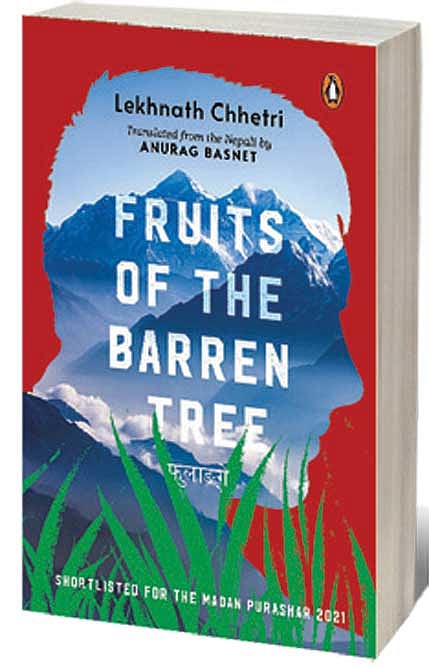Darjeeling Express

FRUITS OF THE BARREN TREE written by Lekhnath Chhetri and translated from Nepali by Anurag Basnet, is a fictional account of the violent political movement for the demand for a separate state of Gorkhaland. It started as an uprising against the state of West Bengal and the ruling parties in the 1980s.
This movement was led by Subhash Ghising, the leader of Gorkha National Liberation Front, who promised to protect the interests of Gorkhas and provide welfare policies that would change their fortune. The novel is a cautionary tale of what happens to a political movement without an organisational strategy. It tells of a failed movement that got hijacked by people looking for personal gains.
“Trees that put out flowers that do not transform into fruit and seeds but waste away and fall off are called ‘phoolange’ …I tell you the truth, I am not the only phoolange in Darjeeling: the movement itself is one of the phoolange. And thus I titled this book,” Chhetri writes in the author’s note.
The author’s father was a member of the Gorkha National Liberation Front. He witnessed the failures of the movement for Gorkhaland as it disintegrated into communalism and nepotism, and he saw how the days of glory that were promised never came. People lost their faith and started mourning everything they had lost to the movement and Chhetri’s house became a place where they found solace for their sorrows.
Imran Khan: Pakistan’s Prisoner
27 Feb 2026 - Vol 04 | Issue 60
The descent and despair of Imran Khan
The protagonist of this story, Jhuppay, is a mischievous thief and a constant troublemaker. He is bad-tempered and eccentric. He can do no good and he is in love with Nimma, whose father is a supporter of the Red Party or the ruling party of West Bengal, the Communist Party of India (Marxist). Jhuppay is disliked by everyone in the village, especially by Chyattar, an ex-army man, who has now turned into a militant for the Green Party or the Gorkha National Liberation Front. The Green Party is formed in opposition to the Red Party and is supposed to bring days of glory to the Gorkha Jaati. Party politics take advantage of these unemployed men who are made into criminals and are forced to pick sides in someone else’s struggle for power. Middlemen and opportunists take advantage of the violent nature of this political uprising to settle their own scores and bring violence and devastation to the lives of ordinary people.
This novel, set mainly in Relling, a small village near Darjeeling, also tells of a love story between Jhuppay and Nimma that becomes a cautionary tale as it takes a violent turn. Nimma wants Jhuppay to leave his mischief and devilry and earn an honest living. With this in mind, Jhuppay buys a loudspeaker, the only one in the village, and decides to rent it for ceremonies. When the Red Party rents his loudspeaker, he could have never imagined how that one act would bring death and violence into his life and the lives of his loved ones. He becomes a helpless pawn in the violent conflict between the Red Party and the Green Party.
The author encapsulates the pluralistic culture of Darjeeling with its various traditions and practices. The people have an intimate relationship with nature as they work as sharecroppers. They are often exploited by businessmen and zamindars. Nature—the fresh harvest, the smell of moist grass and dirt, the sounds of birds and the murmur of the river—comes alive with Chhetri’s vivid prose and Basnet’s flawless translation. The author captures a fast-changing Darjeeling, caught helplessly in the political turmoil of the fight for the Gorkha identity. The movement eventually falls prey to divisive forces and leaves only death and destruction in its wake.

